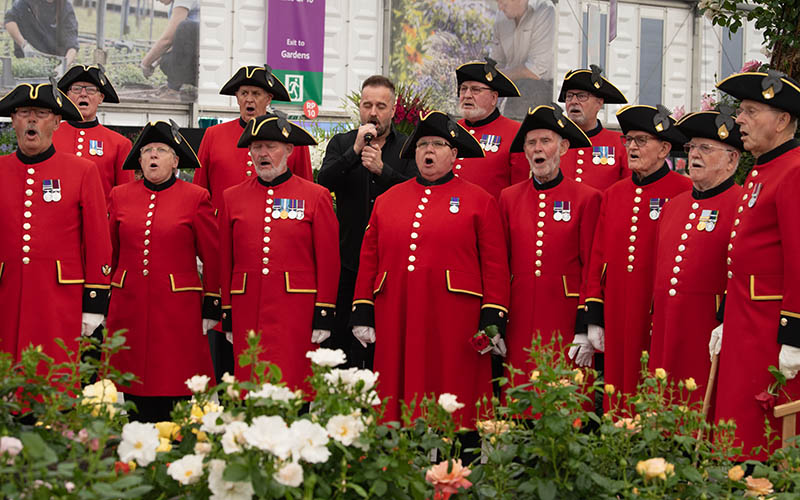
View Photos of RHS Chelsea Flower Show 2024
Hampshire garden designer Ann-Marie Powell has created a show garden for The National Trust:
Pioneering social reformer Octavia Hill (1838-1912), a founder of the National Trust, believed that ‘the healthy gift of air and the joy of plants and flowers’ were vital in everyone’s life. She worked tirelessly to improve urban housing and protect green space, yet today, one-in-three people in Britain still don’t have access to nearby nature-rich spaces.
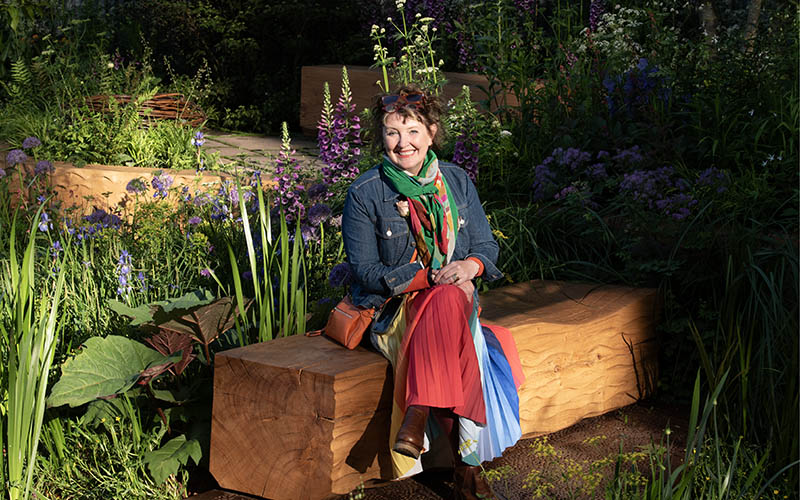
Conceptually located on an urban brownfield site, this beautiful, plant-filled wildlife garden is designed to stimulate physical, mental, and social wellbeing. The garden increases urban biodiversity and encourages visitors to make intimate connections with plants and wildlife.
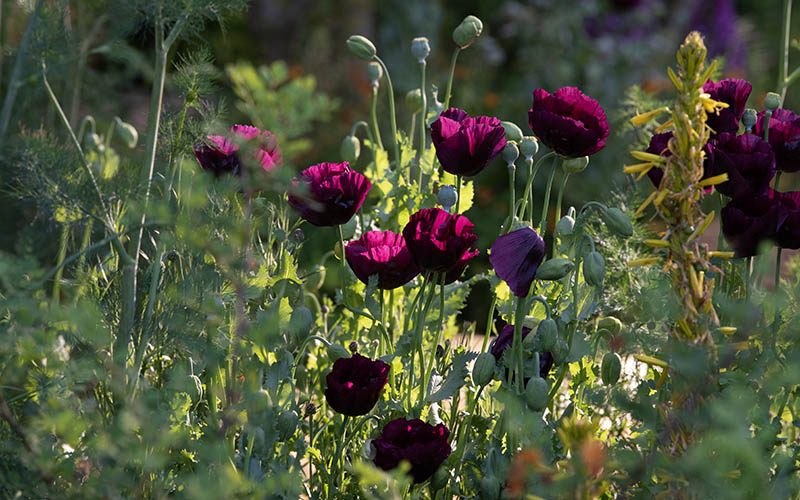
The garden is built around open-air sitting rooms, where visitors feel like they’re part of nature. A timber retaining wall and hand-carved seating provide multiple views over the wildlife, feasting on the pollinator-friendly planting.
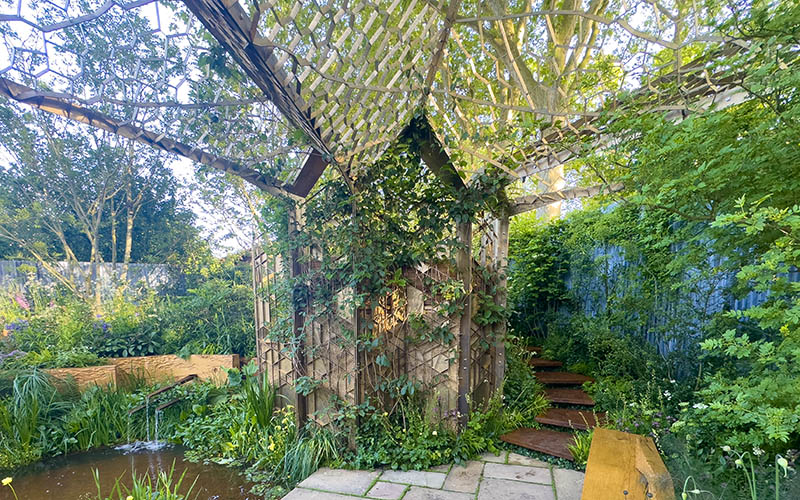
A steel-lattice canopy structure in the pattern of a dragonfly wing, forms a habitat hub for the wider garden – along with bird boxes hung within the trees which trail through the space. A contemporary wildlife pond and walkable stream add to the habitats of the garden, and fills the space with the calming sound of running water.
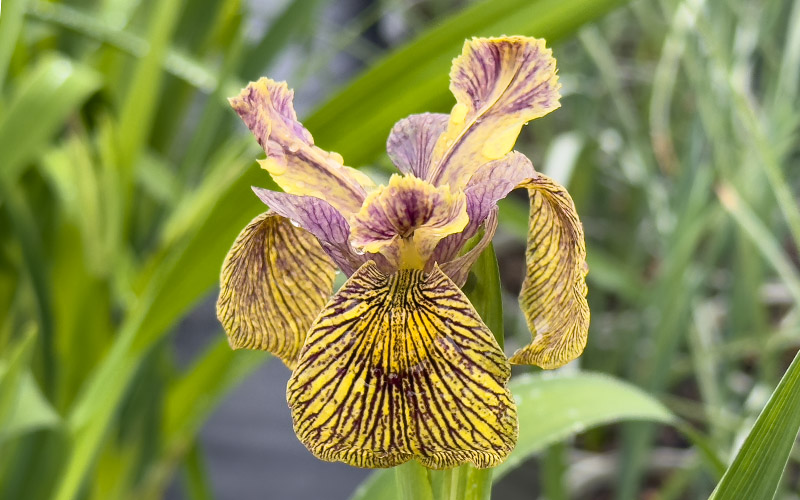
Artist Metalsmith Richard Weaver from Liphook created the featured metal design.
The garden will be relocated to Bridgemere Show Gardens in Cheshire, an RHS Partner Garden.
Spires of digitalis and trailing geranium create a rich planting palette. Several edible species are included in the planting, primarily as food sources for wildlife, and for foraging. All have been included for their ornamental as well as productive values.
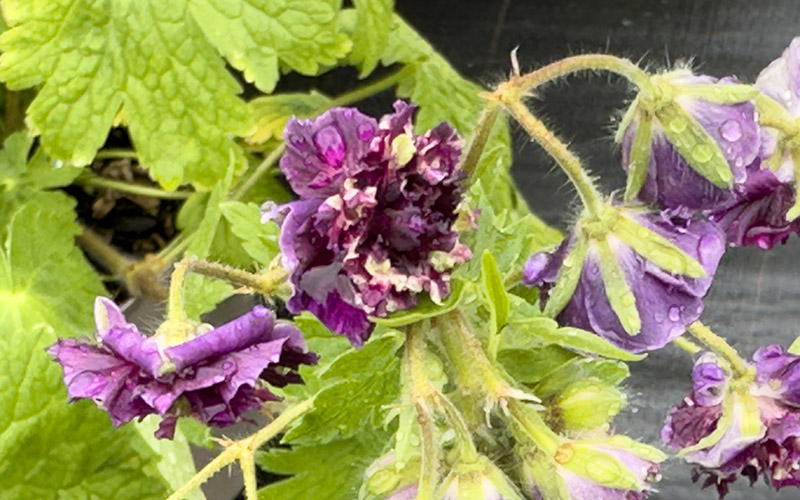
The plants have been grown by Hampshire nursery Hortus Loci.
Ann-Marie was awarded a Silver-gilt Medal and a Chelsea first – the inaugural Children’s Choice Award. She also won People’s Choice.
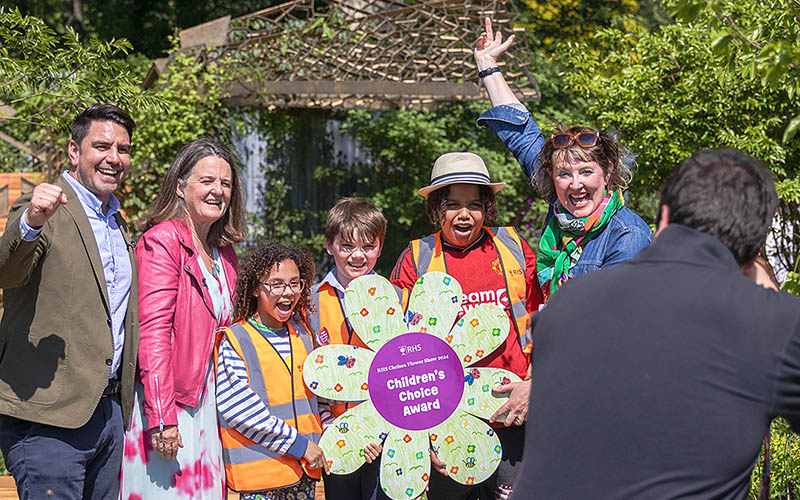
Watch Ann-Marie Powell and Mark Straver (Hortus Loci CEO) discussing her 2024 RHS Chelsea Flower Show garden:
Hortus Loci have also supplied four more Main Avenue gardens:
The entrance into this show garden, designed by Matty Childs, is reminiscent of the flooded base of a rejuvenated quarry landscape. The water level rises and falls, revealing a monolith slate stepping stone creating a bridge to the 2030 vision of no new HIV cases. The tombstone, which once represented death and fear, is now a crossing, leading to a secluded terrace in which to enjoy a positive, hopeful future together.
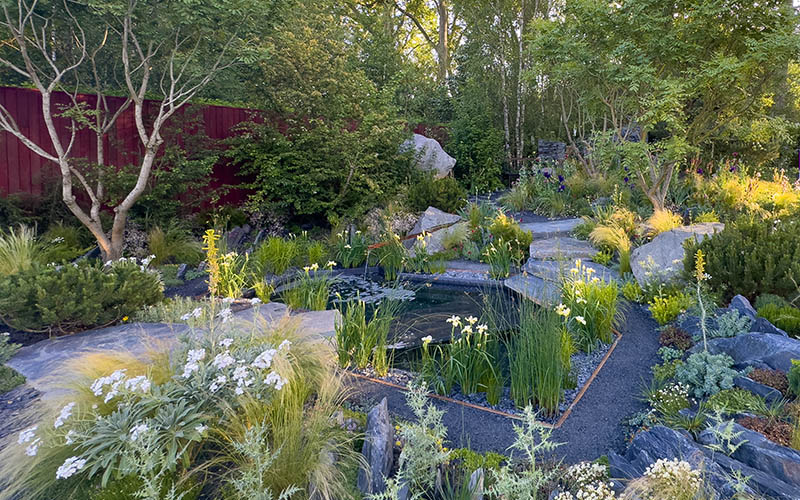
The front of the garden is a crevice garden, which takes inspiration from natural areas where plants grow in gaps between rocks. This ornamental space transitions to a more natural look towards the rear of the garden.
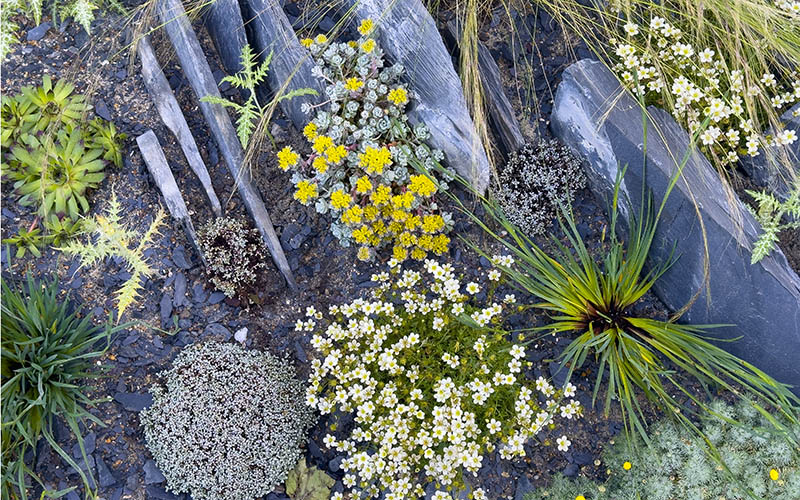
Granite boulders are scattered through the garden, inspired by those found in the slate landscapes of North Wales. One of these boulders balances precariously from the raised bed on the boundary, looking as though it is about to fall. Beneath it, fragile sticks give the illusion they are supporting the weight of the boulder – an analogy for those people lost to HIV.
The planting in the garden is inspired by the recolonisation of plants in the redundant slate mines of North Wales by both nature and from the subtle intervention of ecologists and horticulturalists. Yellows are key to punctuating deeper tones of purples and reds at the front of the garden and connecting with a palette of greens at the rear. Resilient planting for a changing climate is a key theme in the garden.
Matty Childs was awarded Silver-gilt and Best Construction.
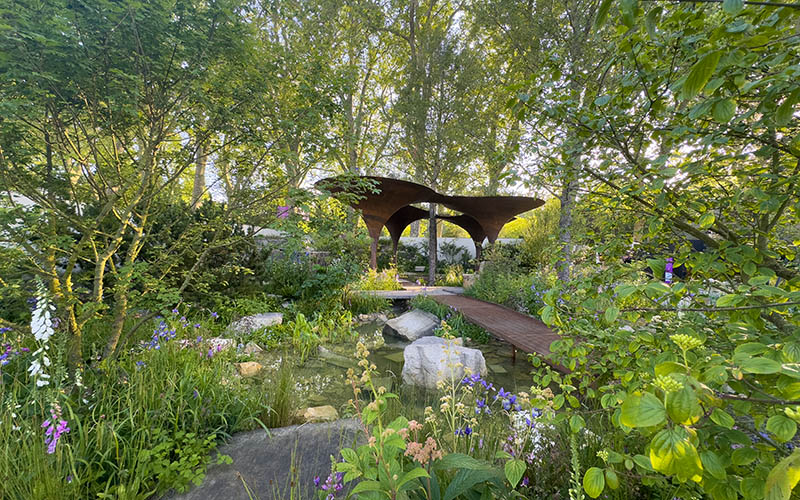
The garden, designed by Tom Massey and Je Ahn, explores what a UK garden might look like in 50 years, focusing on sustainable water management and featuring a colourful array of drought tolerant species and materials that are reclaimed and repurposed with a lighter carbon footprint.
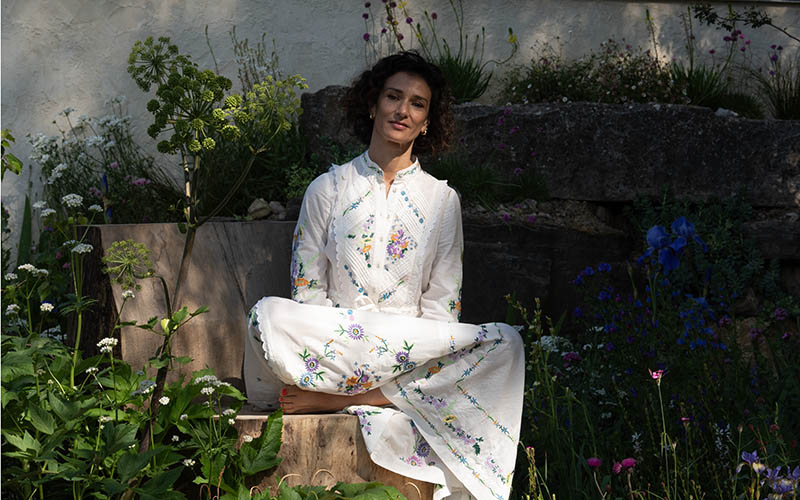
The central pavilion stands among stunning greenery, and plants such as Hottonia palustris and Hesperaloe parviflora. The pavilion is made of a steel subframe, clad with overlapping weathering steel sheets, giving it an organic and fluid form. Rainfall is harvested from the structure, filtering and slowing down its dispersal into the landscape.
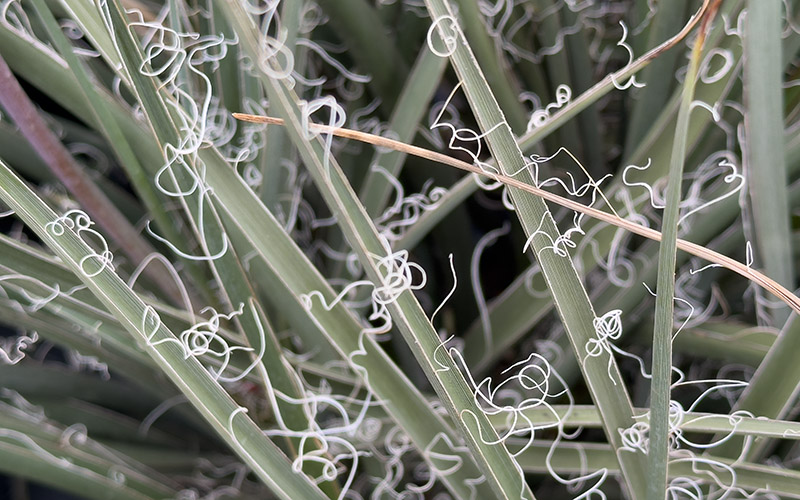
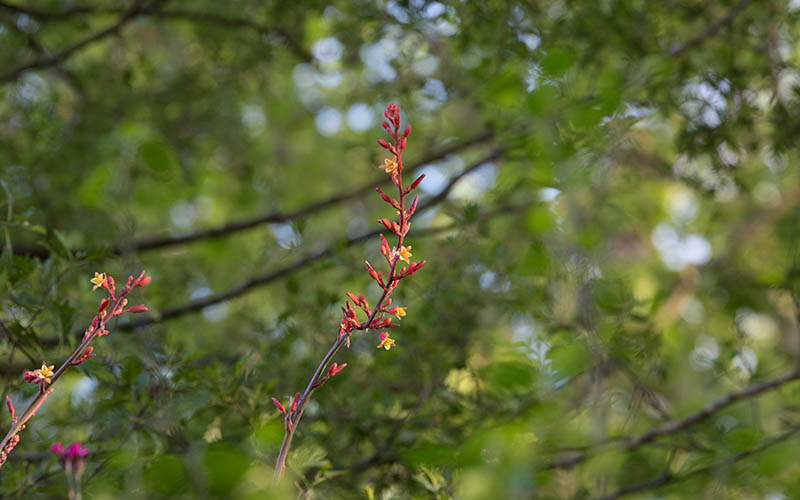
Alnus glutinosa ‘Pyramidalis’ emerge though the pavilion, part of a planting scheme chosen principally for resilience and biodiversity. The planting is textured and colourful, shifting from denser, wetter, lowland areas to sparser, drier upland character with the garden’s shifting topography.
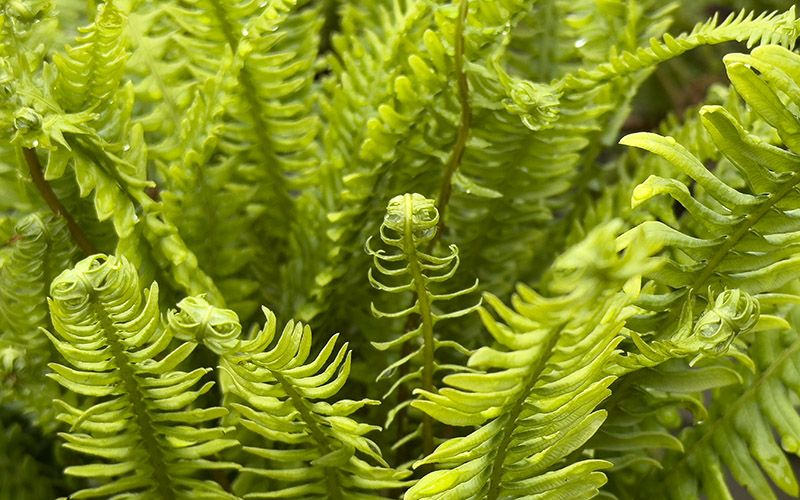
Tom Massey and Je Ahn were awarded Gold.
The garden, designed by Robert Myers, celebrates the restorative power of green spaces in cities, illustrating a sense of hope and recovery and inspiring future generations to ‘imagine the world to be different’. Inspired by the architecture of St James’s church in central London, its bombing during the war and its existing and proposed gardens and precinct. The garden imagines an alternative world where St James’s was only partially restored, becoming a biodiverse garden space built around remnant walls.
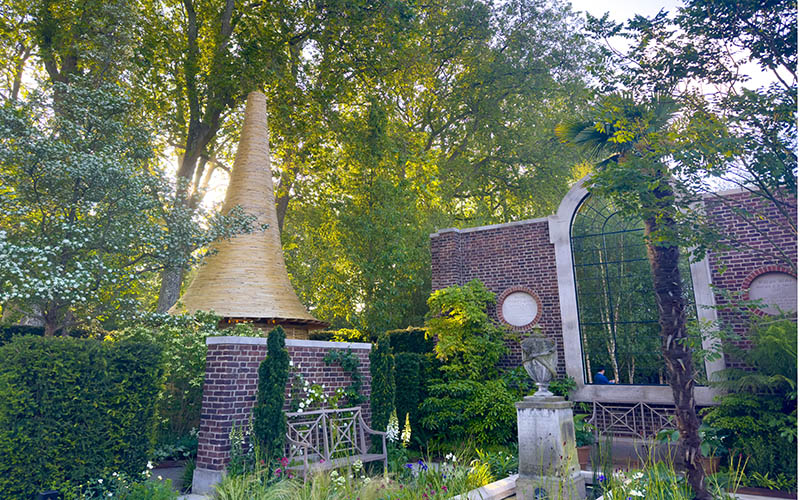
The ‘borrowed’ plane trees of the RHS Chelsea showground echo similar trees at St James’s, as do the materials used including Yorkstone paving, Portland stone copings, window and archway mouldings, and brick planter walls. A tall, rammed earth wall represents the face of the church, and a small pool with water spouts references the fountain at St James’s, with the Mary of Nazareth statue set in the centre.
Calm, contemplative and uplifting, it is a refuge in the city for humans and wildlife, offering lush multi-layered greenery and water to engage the senses.
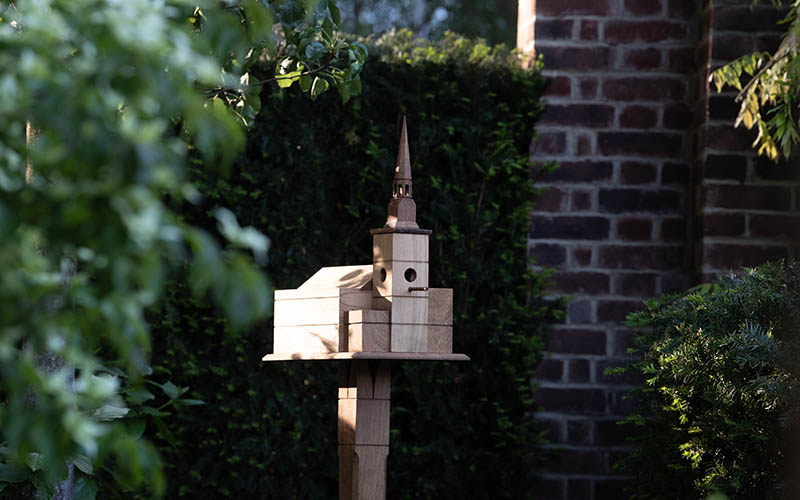
A place of dappled shade, with rich, biodiverse woodland planting, the palette has been selected to evoke the garden at St James’s and the slightly eclectic planting of other urban ‘pocket parks’ with a good proportion of evergreens, plants for wildlife, and low maintenance plants. Textural greens are dotted with splashes of red, lime green, pink, purple and white. Shrubs are mixed with ferns and robust perennials, and walls festooned with climbing plants.
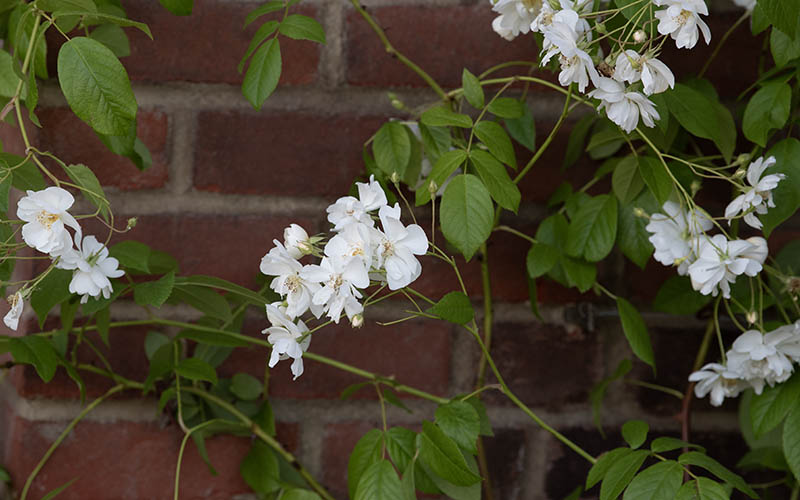
Robert Myers was awarded Gold.
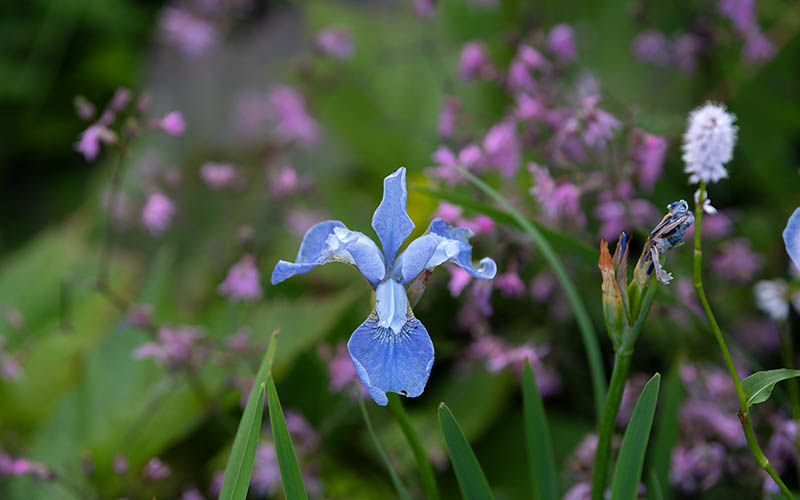
Look out on Main Avenue for more Hortus Loci plants at Harry Holding’s The RHS No Adults Allowed Garden – a Chelsea first as it’s made by children. The RHS invited pupils from Sulivan Primary School in London to work alongside Harry and together they created the brief and design for the garden.
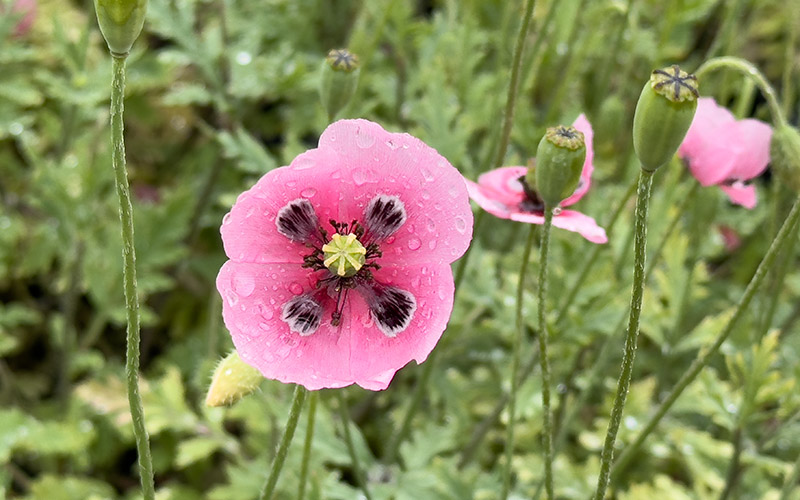
This is a feature garden so isn’t judged.
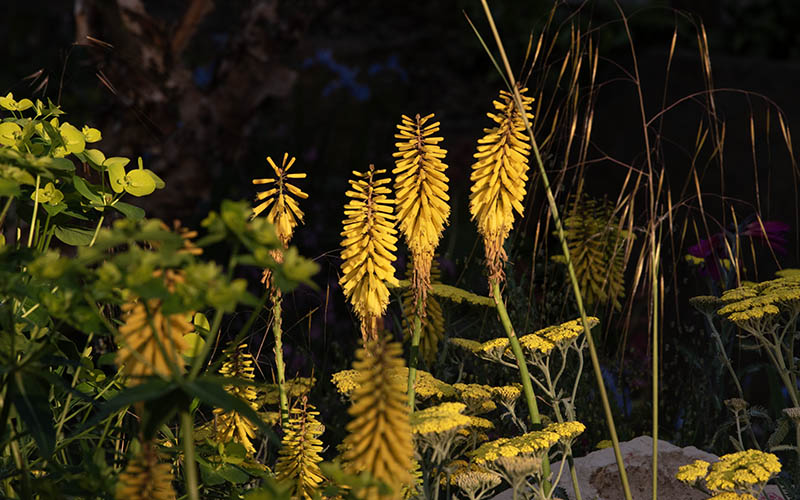
The exhibit contains the ‘Tree of the Show’ – Chinonanthus retusus (Chinese fringe tree). It’s not been at Chelsea before as the weather hasn’t ever allowed it to flower in time.
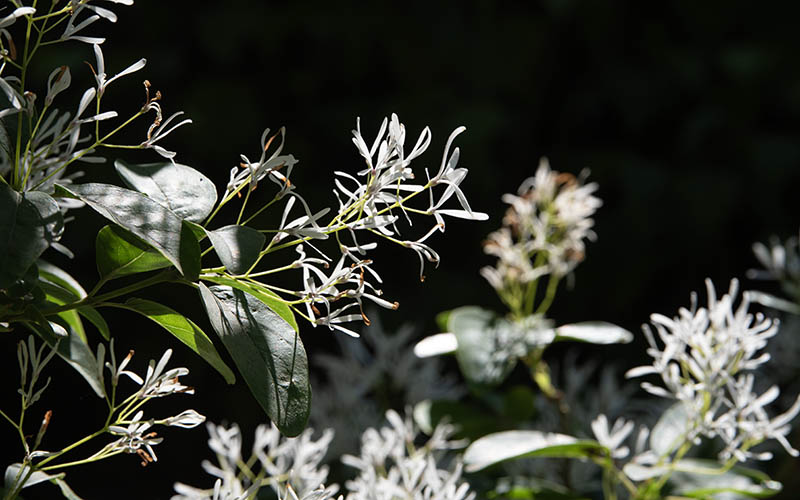
Hortus Loci have also grown plants for an exhibit in the Sanctuary Garden category:
Designed by Giulio Giorgi as a sensory haven, this garden brings joy, hope and escapism through nature for children undergoing cancer treatment, no matter where they live in the world.
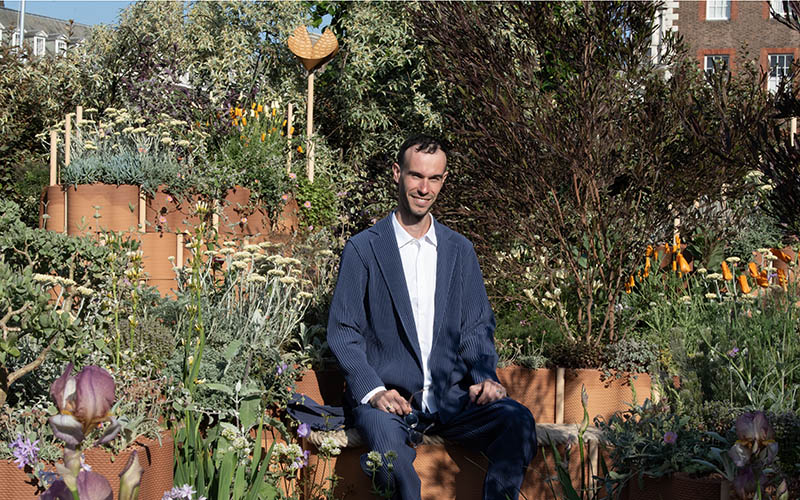
Circular raised beds made from perforated clay blocks offer diverse sensory experiences through soft-touch plants, fragrant herbs and vibrant mosses, whilst the lower raised beds cultivate edible plants for exploration.
These low-maintenance, resilient plants symbolise the countries supported by World Child Cancer to improve global child cancer survival rates through community and healthcare empowerment.
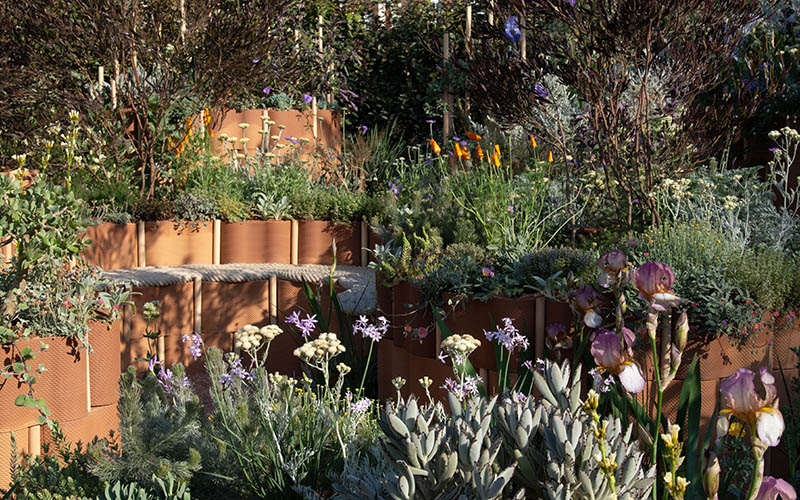
Supporting emotional wellbeing, a child and a parent can stroll through the reclaimed brick path which leads to a scenic meadow surrounded by tall trees, perennials, annuals and shrubs. At its heart lies a seating area which is a restful place for children and their loved ones.
The planting scheme creates a light soothing atmosphere with a leafy matrix of silver-whites and blue-greys, punctuated by vivid and playful flowers in complementary colours. Trees and shrubs, such as Sorbus aria ‘Lutescens’ and Elaeagnus commutata will also help create a serene, protective and soft setting.
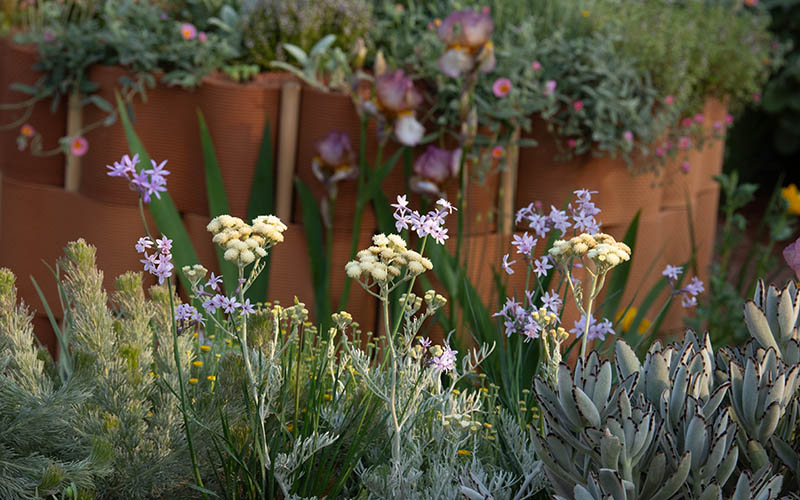
Giulio Giorgi was given the RHS Environmental Innovation Award and also won a Gold Medal.
Hardy’s Cottage Garden Plants are in Tomies Cuisine ‘Nobonsai’ balcony garden designed by Tsuyako Asada. The theme of this garden is “a piece of the landscape of nature”. “Tomie’s Cuisine the Nobonsai” is dedicated to promoting living together with fungi, microorganisms and animals. This balcony garden contains innovative plastic-free, chemical-free, and sustainable gardening methods.
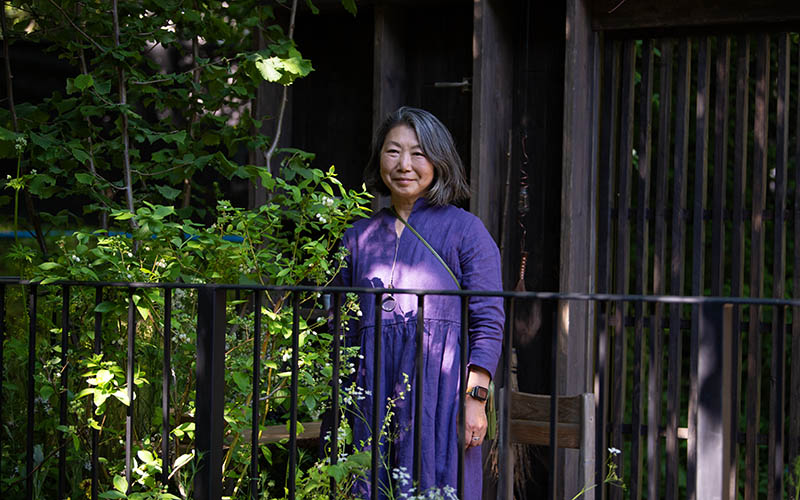
The designers want to inspire visitors with their “no- waste gardening” method. Instead of disposing of garden waste, they reuse pruned twigs, stems, weeds, and leaves by cutting them into small pieces
and placing them on the soil’s surface. This method retains soil moisture, promotes bacteria growth, and enhances mycorrhizal fungi development, making plants healthier and reducing the need for chemical fertilisers. Additionally, it will soften the soil, eliminating the need for soil cultivation.
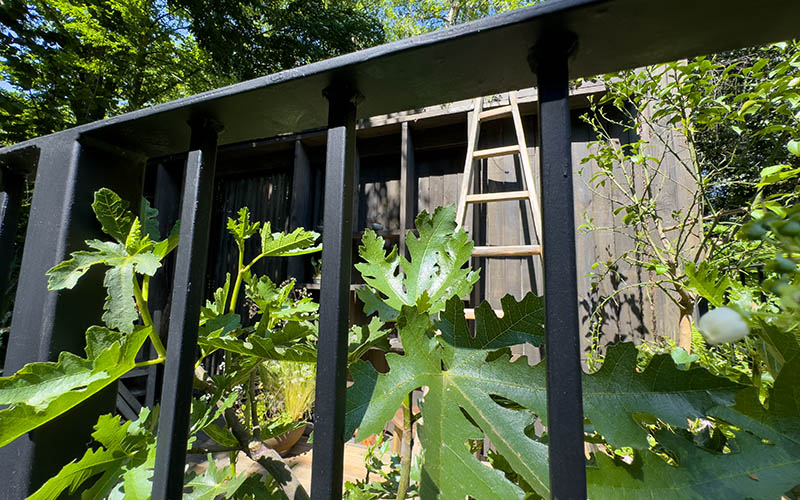
This garden also includes some edible plants. A yuzu citrus tree is the most prominent in this balcony garden, but there is also a hazelnut tree, fig tree, blueberry and many other edible kitchen herbs.
The primary colour scheme of this garden is made up of yellows, blues and purples, with the Isatis tinctoria’s yellow flowers and Angelica archangelica’s purple stems provide the accent colours.
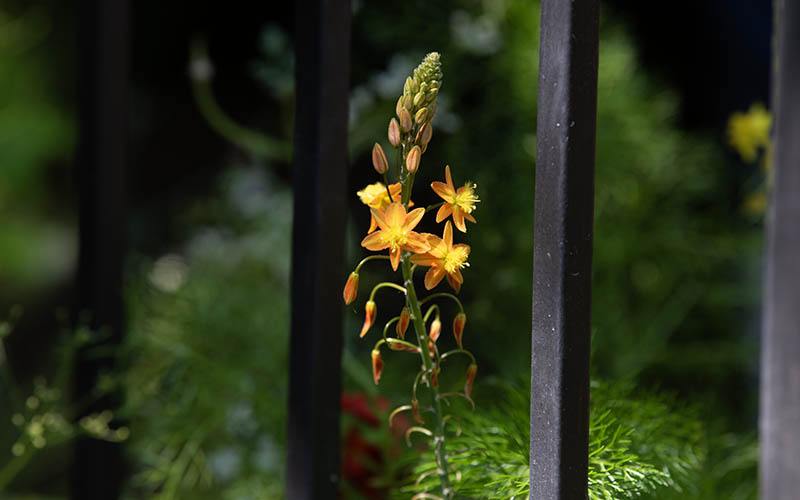
The unsung heroes in this garden are the fungi, bacteria and microorganisms. These essential elements are necessary for a garden and keeping them from disappearing or decreasing is the whole point behind making a sustainable garden.
Tsuyako Asada was awarded Silver-gilt.
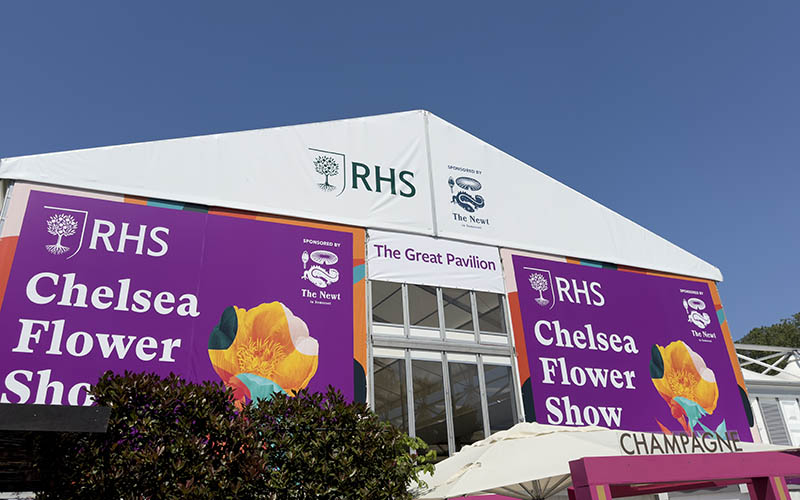
Look out for a pretty new rose ‘National Trust Beauty.’
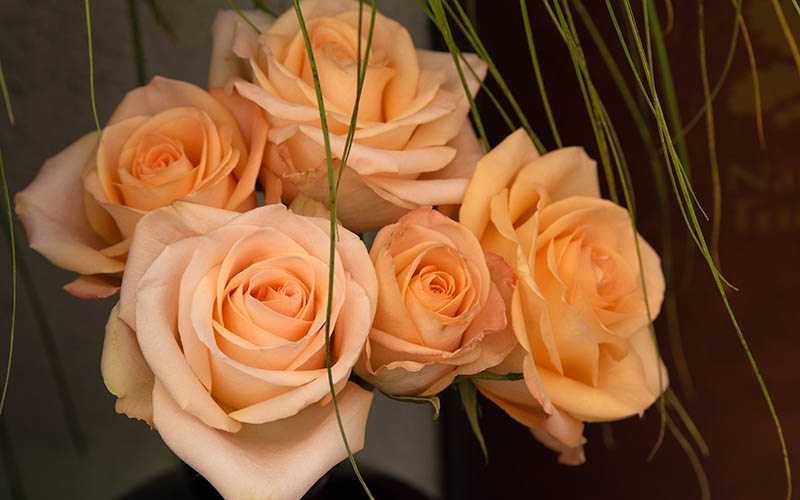
In the central Monument Site, you’ll find the feature garden of Emma Tipping who has been mentored by Hampshire horticulturalist Rosy Hardy. The garden features a mix of herbs, vegetables, mushrooms and wildflowers and it’s one you can walk around. It tells the story of a day on the nursery.
Rob Hardy mentored Cosmos National Plant Collection Holder, Jonathan Sheppard for his first ever Chelsea Flower Show. He was given a Silver medal.
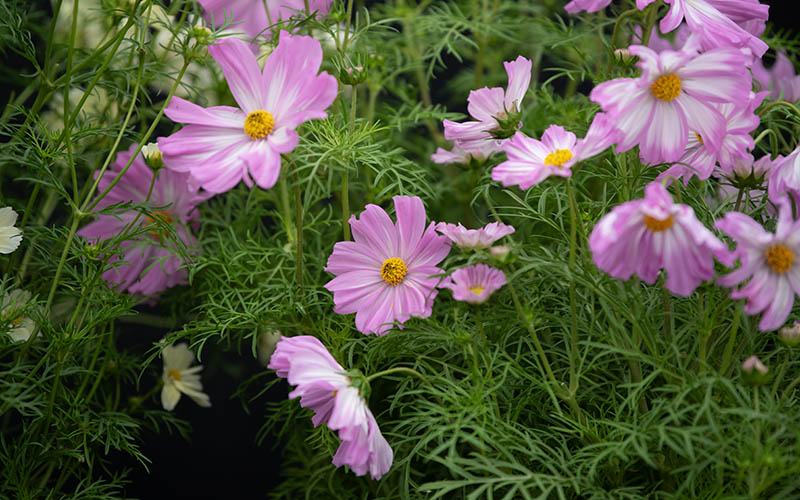
Hampshire’s Sparsholt College entered a garden with horticultural charity The Colegrave Seabrook Foundation. The exhibit explores the history of plant introductions from Hampshire whilst celebrating the impact of influential horticulturists and the role the college has played in their professional growth. They were awarded Silver-gilt. See the exhibit at GPA004.
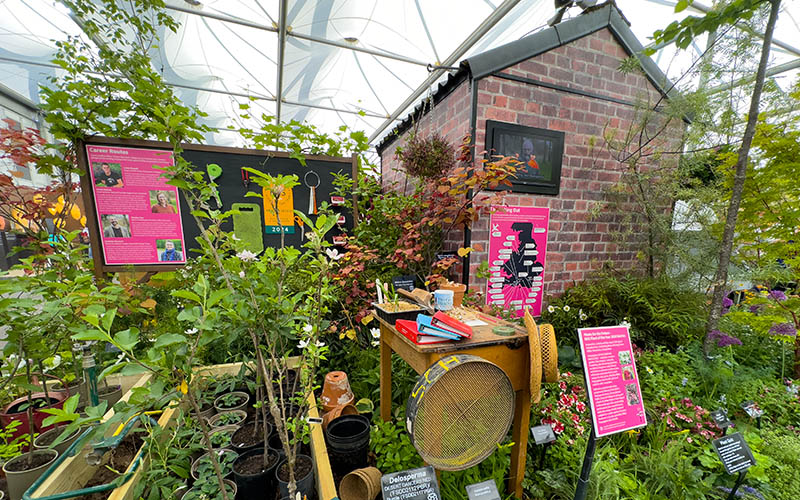
Sparsholt College entered five plants including:
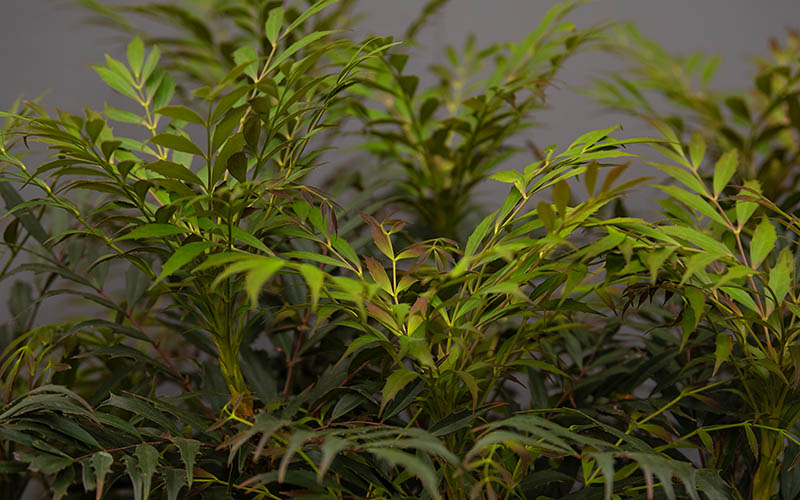
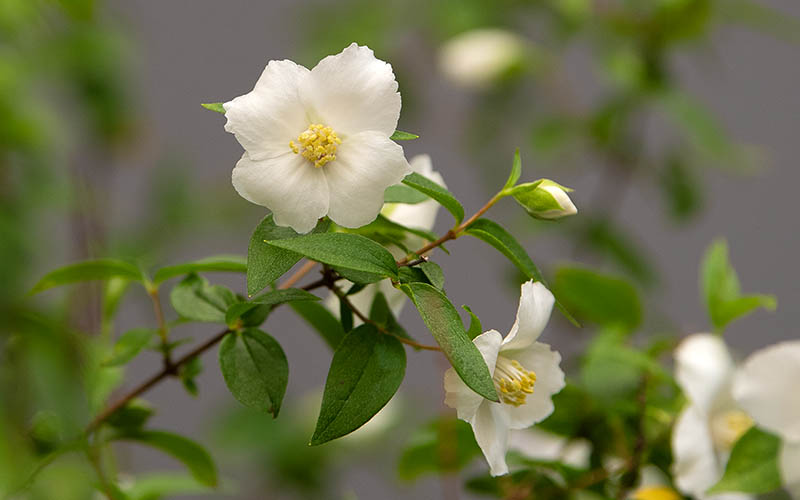
The RHS Chelsea Plant of the Year 2024 went to Prunus ‘Starlight.’ The flower was bred by Ken Tobutt, exhibited by Green Jjam Nurseries and supplied by Frank P Matthews.
You’ll also find:
Hampshire Carnivorous Plants, Southampton
Site No: GPD055
Carnivorous plants in a natural setting
Medal: Gold
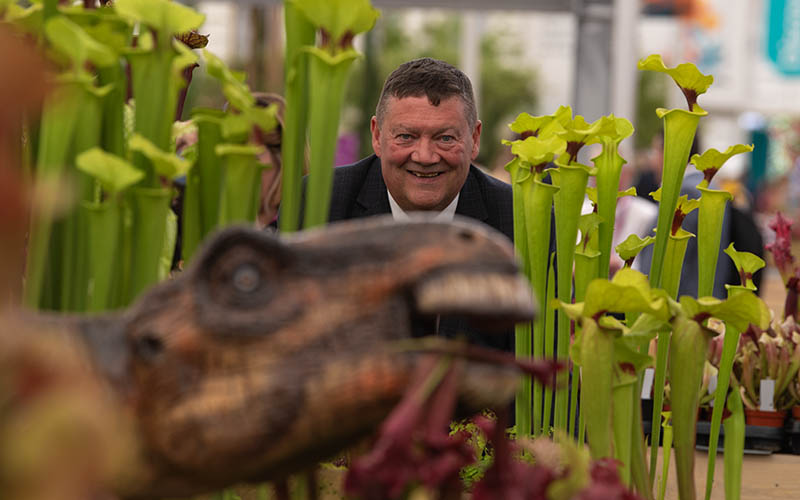
New Forest Hostas & Hemerocallis, Ringwood
Site No: GPB029a
Display of ferns and other foliage plants
Site No: GPB029b
Medal: Gold
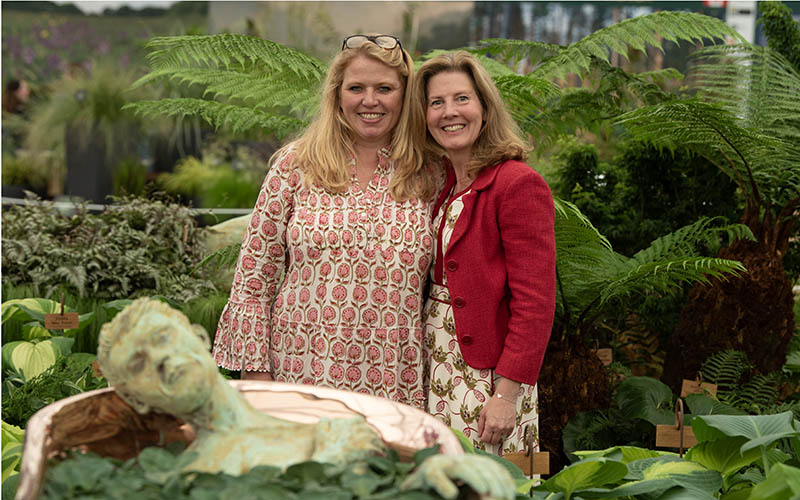
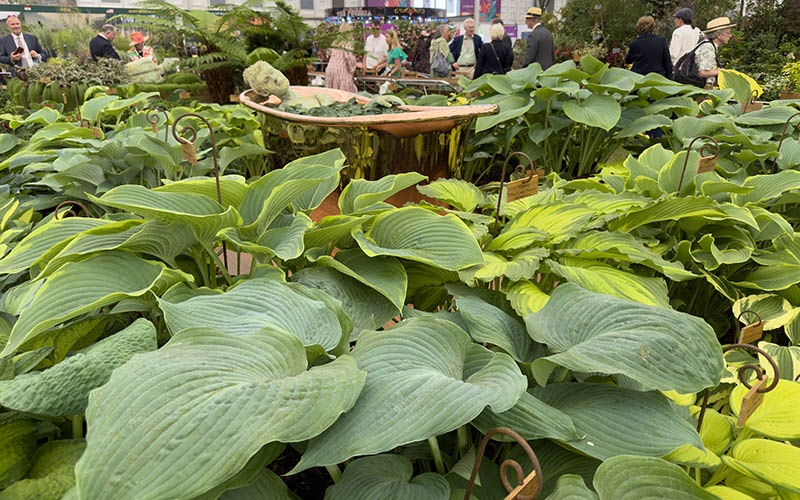
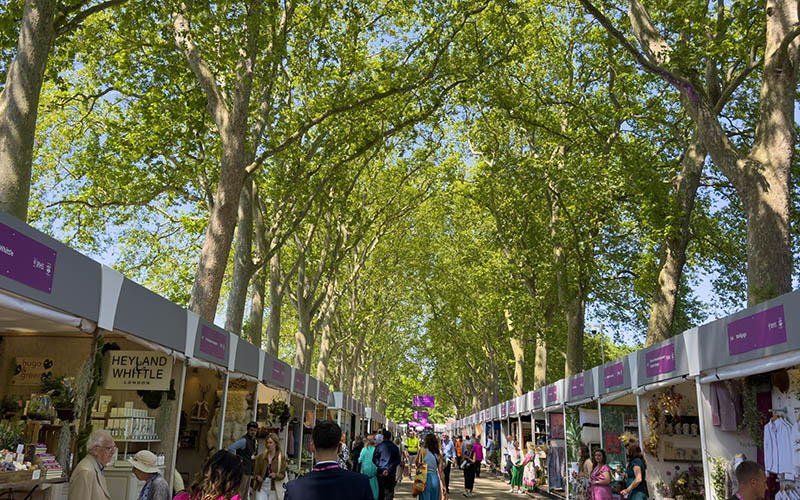
Look out for:
Alitex Ltd, Petersfield
Site No: MA336
Bespoke aluminium glasshouses of all sizes
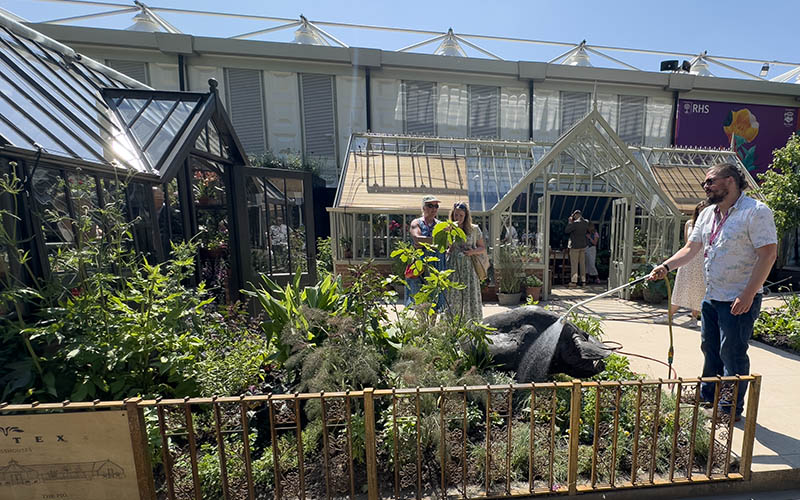
Ann-Marie Powell Gardens, Petersfield
Site No: MA321
Creative DeZigns, Eversley
Site No: AR611
Ethical cotton clothing styled by nature
GBBC Ltd, Winchester
Site No: EAE550
Hand care, home fragrance & sustainable gifts
Griffin Glasshouses Ltd, Ropley,
Site No: ERHW240
Handmade aluminium Victorian-style greenhouses
Oxenwood, Andover
Site No: SR145
Oak outdoor furniture and outdoor kitchens
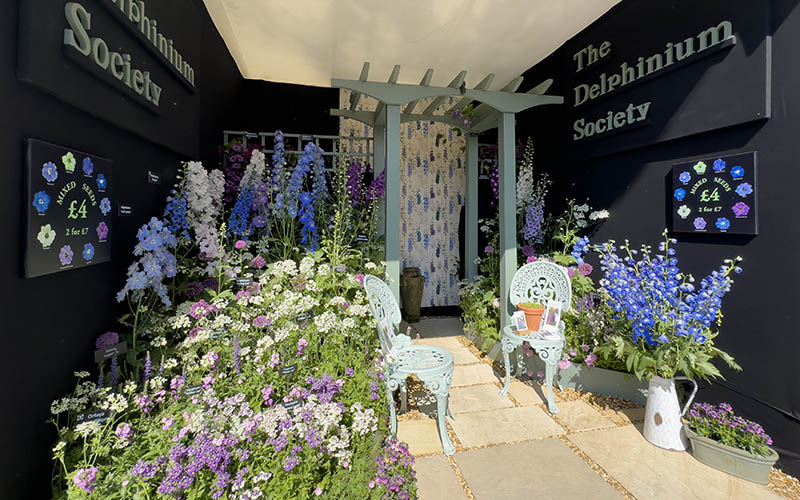
The Delphinium Society, Romsey
Site No: EAE510
Delphiniums in a garden setting
Cunard have again partnered with the RHS to present The Stage.
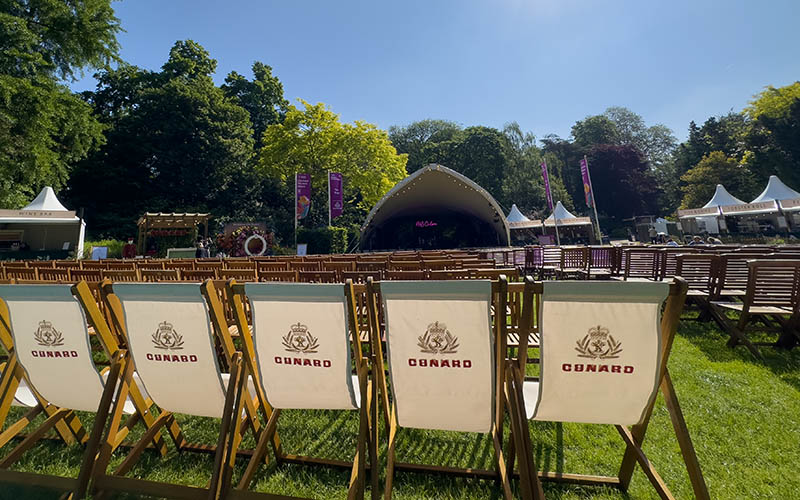
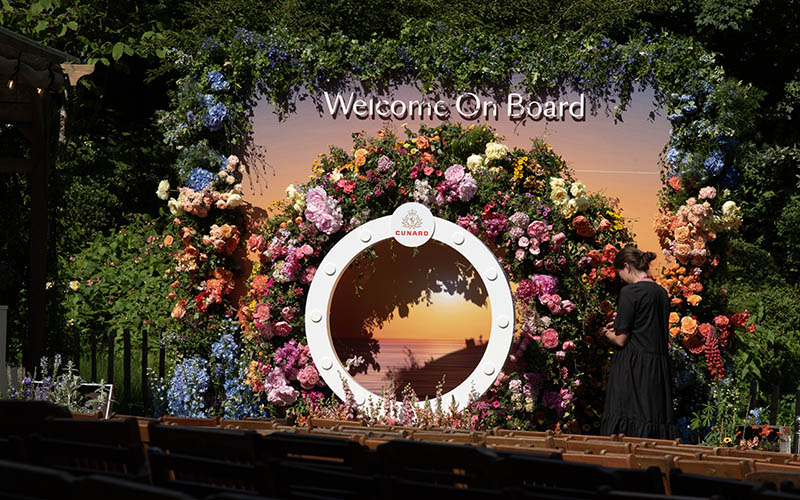
It wouldn’t be Chelsea if there weren’t a few celebs around. Keep your eyes peeled.

The RHS Chelsea Flower Show is on from 21-25 May 2024.